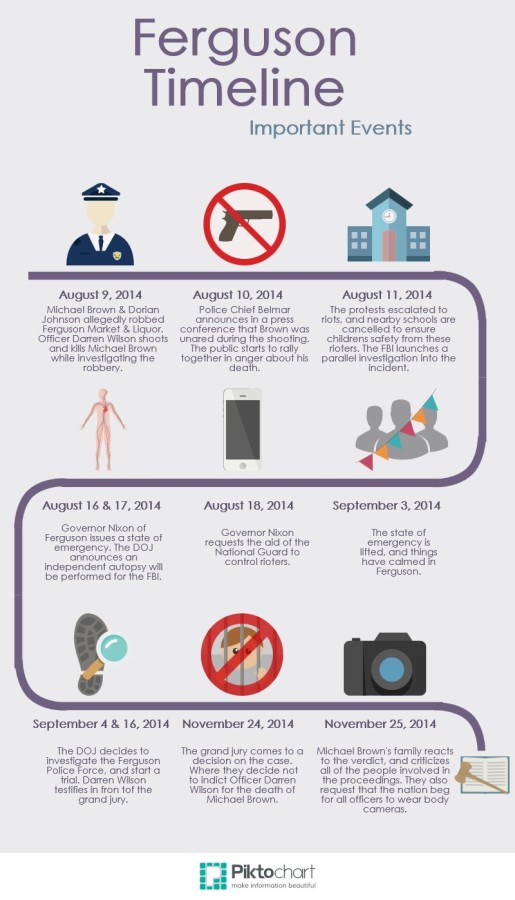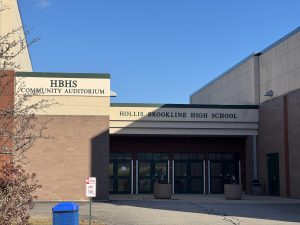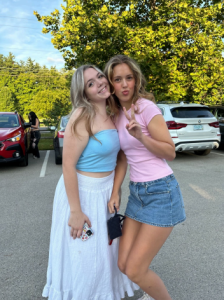Ferguson riots: Justified, or divisive?
January 23, 2015
For months, the American public has been watching protests and riots in Ferguson, Missouri, which have erupted from controversy over the death of black teenager Michael Brown at the hands of a white police officer.
The case has been one of contradicting and questionable evidence, and many people have stuck with their own perspectives even in the face of an officially rendered verdict.
It’s hard to imagine such an event unfolding in New Hampshire, let alone Hollis-Brookline’s community or the towns surrounding us. However, retired Milford detective Garrett Booth gave a more detailed version of some of the events and feelings that come with deciding how to act in a scenario such as the Michael Brown shooting.
Booth began his career as a part-time officer in Lyndeborough and was promoted to sergeant, then trained as a Drug Recognition Expert, Field Training Officer, and an assistant K-9 handler. Booth then resigned from the Lyndeborough Police Department, and started work at the Milford Police Department, where he was promoted to a detective.
While Booth was serving as detective, he was involved in a shooting that resulted in the death of a suspect.
When faced with the decision to shoot or to hold fire, Booth “Wouldn’t ask [him]self any questions, nor should any other officer.”
“However,” he said, “There should be an internal checklist in place. Is the suspect complying with your verbal requests and demands, and are you, or anyone else in the general public, in danger? If that answer is yes to the former, then continue on. If the answer is yes to the latter, then the threat needs to be stopped.”
In the words of foreign exchange student Guillem Pujadas, ’15, “[Officer Darren Wilson] was a cop and he thought his life was in danger. He’s been through a lot; he’s paranoid.” Pujadas also said, “America is not a racist country, it has diversity, you should go to Spain and see what racism is.”
However, the Michael Brown case is not the only death protesters have been active about. Eric Garner was a man selling single, tax-free cigarettes on the streets of Staten Island, New York. A police officer approached him and asked why he was selling these cigarettes after he had already been arrested once before on the same crime. Garner denied the fact that he had been selling cigarettes that day, and asked the officer to “Please just leave [him] alone.”
Garner continued to say, “I told you the last time, please just leave me alone.”(Source: ABC News) Another officer arrived, and began to restrain Garner with a chokehold. A video was released shortly after the event, in which Garner can be seen saying, “I can’t breathe.” repeatedly in the video. The man died on his way to the hospital later that day, from a heart attack.
While the Michael Brown case was highly controversial, the Grand Jury decided that Officer Darren Wilson was well within his rights and that his actions were justified. However, the Garner case is a little less murky. The video seems to tell all.
However, by no means, should these two cases lead to violent protests. The protests have spread from Ferguson to places all over the country, calling back memories of the L.A. Riots after the Rodney King trial. These “peaceful” protests have led to even worse relations between the police and the black community. They have turned violent, many leading to looting, and they have far surpassed the First Amendment’s protection. Many have criticized the rioters, including former L.A. Laker, Charles Barkley, who said, “There is no excuse for people to be out there burning down people’s businesses, burning down police cars.”(Source: 97.5 The Fanatic)
There is no denying that racial inequality is an issue in this country. No matter the racial legislation that passes through this country, the problem has existed and will continue to exist for a long time. These protests and riots are only widening the divide between the police and the black community. The deaths may be tragic, but the diminishing relations are even more disheartening.














